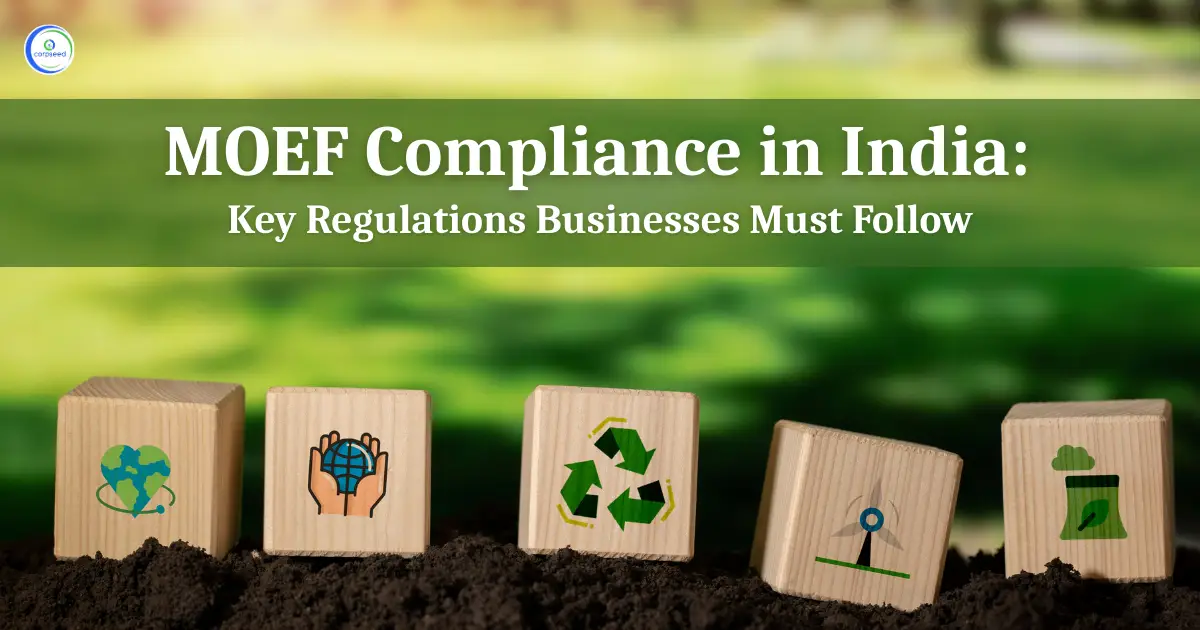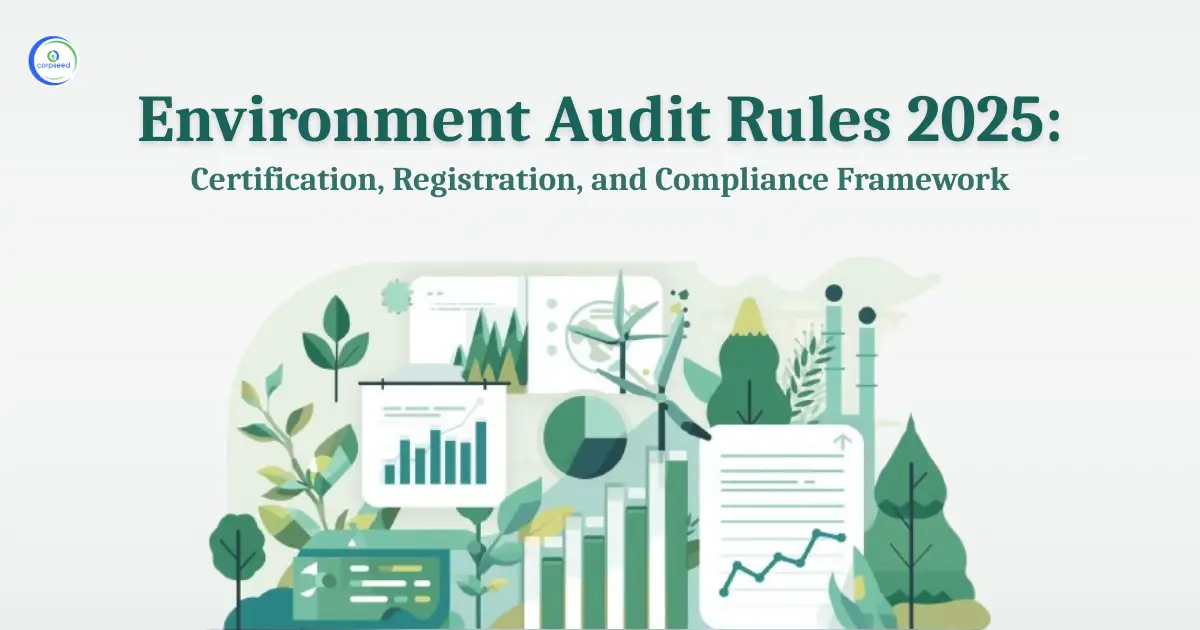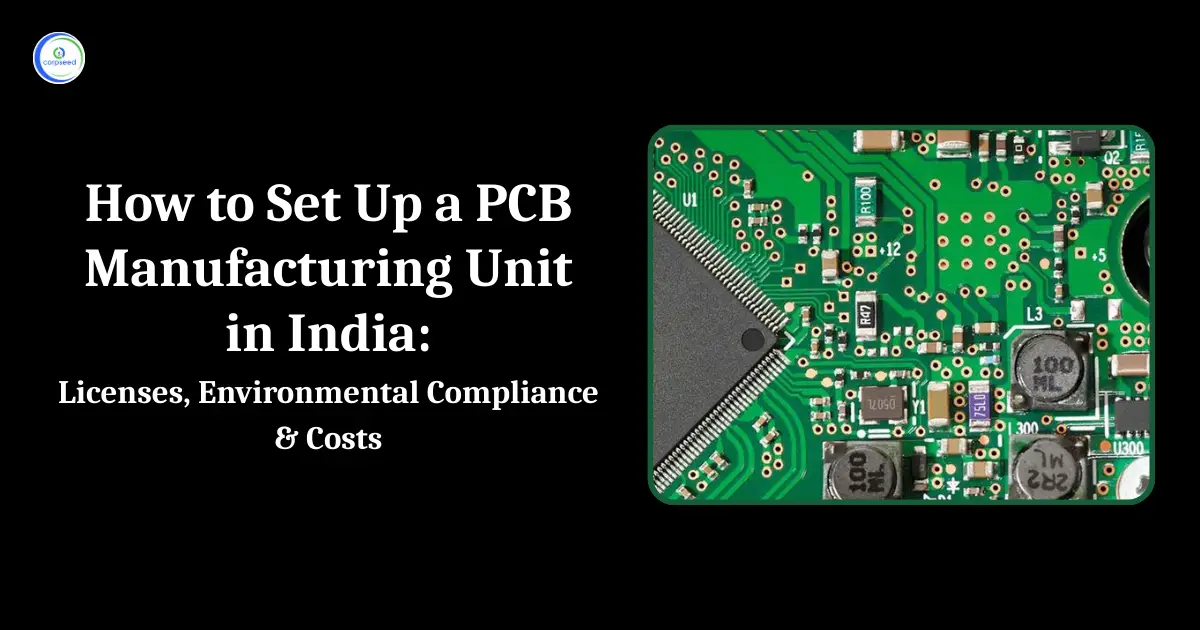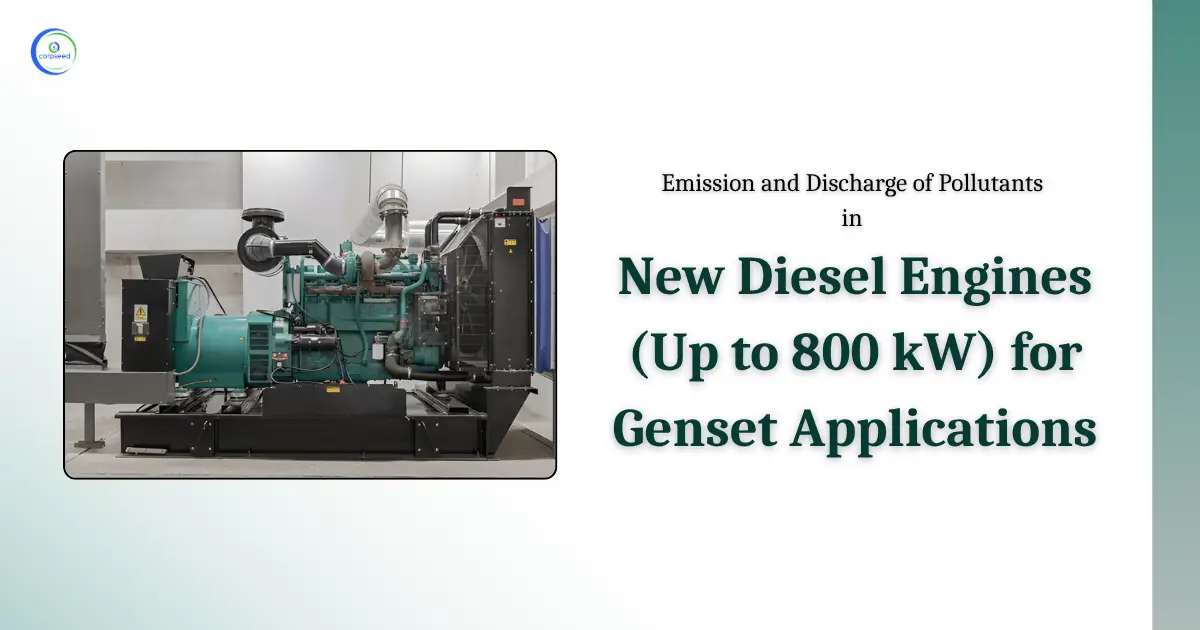Environmental pollution from flour mills, grain processing, paddy processing, pulse making and grinding mills is a rising concern in India. These industries produce dust, wastewater, and other pollutants that can damage air and water quality. To reduce their environmental impact, the Central Pollution Control Board (CPCB) and State Pollution Control Boards (SPCBs) impose firm standards of emissions and discharge substances. These standards help control pollution levels, ensure mills function in an eco-friendly way while safeguarding public health and adhering with the Environment (Protection) Rules, 1986, and its amendments.
Table of Contents
- Understanding Environmental Pollutants in Flour Mills and Grain Processing Industries
- Environmental Pollutants from Flour Mills, Grain Processing, Paddy Processing, Pulse Making, or Grinding Mills
- Why Are Emission Standards Important in Food Processing Industries?
- Emission Standards for Flour Mills and Grain Processing Units
- Specific Standards for Paddy Processing Units
- Pulse Making or Processing Units
- How Can Industries Comply with These Standards?
- Conclusion
Understanding Environmental Pollutants in Flour Mills and Grain Processing Industries
Flour mills, grain processing units, paddy processing, pulse making, and grinding mills are important in India’s food supply chain. However, they also contribute to environmental pollution, particularly through dust releases, wastewater discharges, and storm water pollution. Dust produced during milling, grinding and handling of raw materials can lead to air pollution, which can cause respiratory problems in neighbouring communities. Wastewater from treatment and processing plants often contains organic matter and chemicals that can threaten aquatic reservoirs if not treated appropriately. Understanding these contaminants is crucial to applying effective control measures. The CPCB and SPCB provide clear guidelines on emission standards, dust extraction, and waste treatment to mitigate the environmental impact of these industries.
--------------Blog Contact Form-------------
Environmental Pollutants from Flour Mills, Grain Processing, Paddy Processing, Pulse Making, or Grinding Mills
Industries associated to grain processing face specific pollution challenges:
- Dust Emissions: Fine particles produced from grinding, ingestion and handling of flour, pulses and cereals can spread into the air, resulting in respiratory issues and environmental degradation.
- Effluent Discharge: Water used in grain cleaning and processing contains organic waste, which, if left unprocessed, can pollute aquatic reservoirs, affecting aquatic life.
- Fugitive Emissions: Uncaptured dust and powder from machinery and storage areas contribute significantly to local air pollution.
- Storm water Contamination: Mixing of storm water with industrial wastewater can cause soil and water pollution if not managed correctly.
- Noise Pollution: Functioning machinery in mills can also produce noise, which affects the surrounding environment.
Why Are Emission Standards Important in Food Processing Industries?
Food processing industries like flour mills and grain processing units are mainly dependent on raw agricultural products. Their functions, while necessary, include procedures such as cleaning, grinding, penetrating, drying, and packaging, which produce waste materials, dust, and effluents. Following are the key environmental concerns:
- Air Pollution: Dust and particulate matter generated during grinding, milling, and handling can contribute to air pollution, causing respiratory problems for workers and nearby communities.
- Water Pollution: It is another significant concern. Effluents discharged from washing, cleaning, and processing grains often contain organic matter and chemicals. If untreated, this water pollution contaminates nearby water bodies, disrupting aquatic life and threatening human health.
- Solid Waste: Its generated from these processes, including husk, bran, and other residues, poses environmental risks if not managed properly. Improper disposal of solid waste contributes to soil pollution, creates unpleasant odours, and attracts pests, further impacting community health.
- Noise Pollution: Milling machinery generates noise, affecting the surrounding environment.
Emission Standards for Flour Mills and Grain Processing Units
Under the Environment (Protection) Amendment Rules, 2012, specific emission standards apply to flour mills, grain processing, paddy processing, pulse making, and grinding mills. The key requirements include:
- Dust Extraction: All dust-generating equipment and processes must have proper dust extraction systems to capture airborne particles.
- Bag Houses and Chimneys: Dust collectors like bag houses must be connected to chimneys or stacks with a minimum height of 12 meters, or at least 2 meters above the highest point of the building.
- Fugitive Emissions: Shop floor dust and fugitive emissions must be channelled through a stack of similar height to ensure effective dispersion.
- Effluent Management: Wastewater must be treated before discharge, and storm water should be kept separate from process effluents to prevent contamination.
- Storm water Control: Storm water drainage must be designed to prevent mixing with scrubber water or effluents, with provisions like HDPE lined pits for holding and managing rainwater runoff.
| SI. No. | Industry | Parameter | Standards | ||
| "69. | Grain Processing. Flour Mills, Paddy Processing, Pulse Making or Grinding Mills | A. Emission Standards | |||
| Capacity (tonne per hour) | Limiting Concentration in mg/Nm3 | ||||
| Particulate matter | 1 to 3 | 150 | |||
| More than 3 | 100 | ||||
| Notes:- (i) All dust generating equipments or processes shall be provided with dust extraction arrangement. (ii) The bag houses, etc., shall be connected to chimneys/stacks of 12 metres height or at least 02 metres above the top most point of the building or shed or plant in the industry. (iii) The unit shall channelize shop floor/fugitive emissions through a stack of 12 metres height or at least 02 metres above the top most point of the building or shed or plant in the industry. |
|||||
| B. Effluent Standards | |||||
| Limiting value for concentration in mg/l, except for pH | |||||
| Inland surface water | Public sewer | Land for irrigation | |||
| pH | 5.5-9.0 | 5.5-9.0 | 5.5-9.0 | ||
| Suspended Solids | 100 | 600 | 200 | ||
| Oil & Grease | 10 | 20 | 10 | ||
| BOD, 3 days at 27°C | 30 | 350 | 100 | ||
| COD | 250 | - | - | ||
| C. Storm water Standards | |||||
| i) Storm water for a unit (having plot size at least 250 square meters) shall not be allowed to mix with scrubber water, effluent and/or floor washings. (ii) Storm water within the battery limits of a unit shall be channelized through separate drain/pipe passing through a HDPE lined pit having holding capacity of 10 minutes (hourly average) of rainfall." |
|||||
Specific Standards for Paddy Processing Units
Paddy processing involves husking, polishing, and cleaning rice grains.
- Air Emission: Dust emissions from husking machines are regulated, with similar PM limits as in flour mills (usually ≤150 mg/Nm3).
- Water Discharge: Washing effluents are expected to have low BOD and TSS, limits are typically similar to those for grain mills.
- Noise Standards: Noise levels at the plant boundary should not exceed 75 dB (A) during the day and 70 dB (A) at night.
Pulse Making or Processing Units
Pulses processing units involve cleaning, grading, soaking, and milling.
- Emission and discharge standards for pulse mills closely align with those for grain and flour mills due to similar processing steps.
- Special attention is given to controlling dust emissions from pulse grinding.
- Wastewater from soaking and washing pulses should be treated before discharge.
How Can Industries Comply with These Standards?
For compliance and environmental protection, it is necessary to implement pollution control methods. Below are key measures industries can adopt:
- Install Dust Control Systems: Use bag filters and cyclones to catch dust before discharge. Apply water spray in dusty areas to reduce airborne particles and safeguard worker health and the surrounding environment.
- Effluent Treatment Plants (ETPs): Route wastewater through ETPs for sedimentation and biological treatment. Monitor water quality regularly to ensure meeting emission standards, safeguarding water reservoirs and compliance with regulations.
- Solid Waste Management Plans: Encourage reuse and recycling of by-products such as husk and bran. Safely dispose of non-recyclable waste by following guidelines to avoid soil pollution and maintain environmental hygiene.
- Regular Monitoring and Reporting: Frequently take air and water quality samples. Maintain records and submit reports to authorities, ensuring compliance, responsibility, and timely corrective action on pollution limit violations.
Conclusion
Flour mills, grain processing, paddy processing, pulse making, and grinding mills play important roles in the food supply chain. However, without adequate environmental controls, their operations can cause pollution that affects water, air and soil quality.
Adherence to given standards for emissions and discharges is not only a legal obligation but also an ethical obligation to protect public health and natural resources. By investing in pollution-control technologies, implementing sustainable waste management practices, and promoting environmental awareness, these industries can function profitably while conserving the environment for future generations.
This portion of the site is for informational purposes only. The content is not legal advice. The statements and opinions are the expression of author, not corpseed, and have not been evaluated by corpseed for accuracy, completeness, or changes in the law.
BOOK A FREE CONSULTATION
Get help from an experienced legal adviser. Schedule your consultation at a time that works for you and it's absolutely FREE.


.webp)





_Corpseed.webp)
.webp)